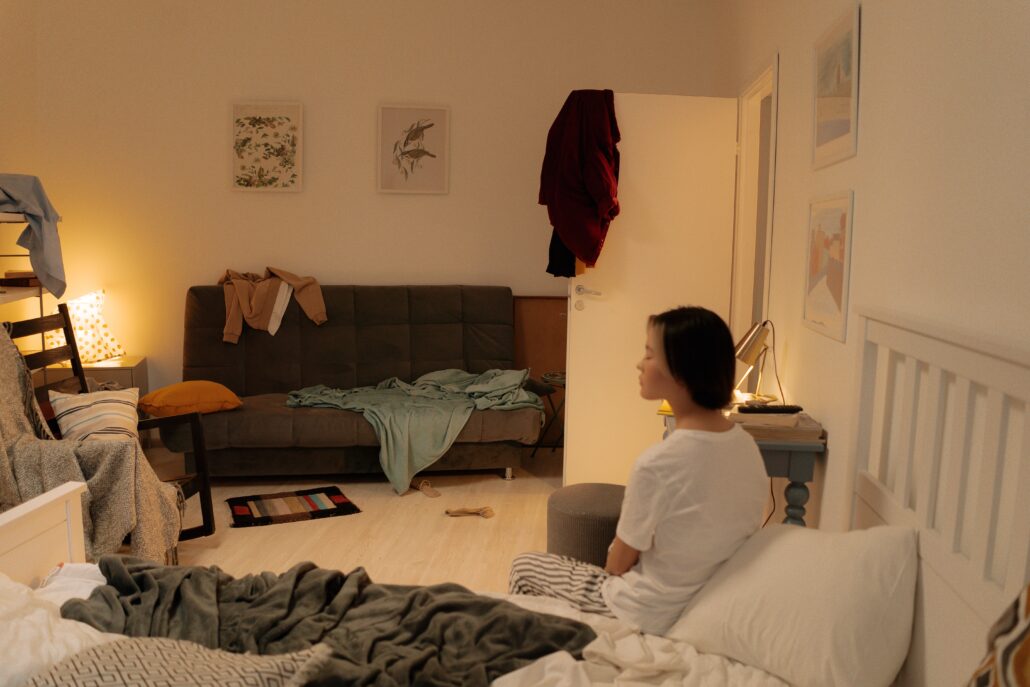How are OCD and Depression Related?
A lot of people have obsessive-compulsive disorder (OCD), which is also one of the worst and most frustrating mental illnesses. It has a big effect on daily life, personal relationships, success at work or school, and overall happiness with life. It’s not a surprise that OCD and depression are often linked.
Having OCD, which is marked by unwanted thoughts and the need to do meaningless rituals, can easily lead to major depression. Studies have shown that a lot of people who have OCD also have significant depressive episodes, which supports this link. This includes chronic depression, trouble finding joy in activities, being alone, changes in appetite and sleep, less libido, more crying, a sense of hopelessness, and a sense of not being worth anything.
Most people who have both OCD and depression say that their OCD symptoms came before their depressed symptoms. This suggests that depression develops because of the stress that OCD causes. Even though it happens less often, depression and OCD can also happen at the same time or with despair coming before OCD.
What is Depression?
According to the National Institute of Mental Health, depression is a common but serious mood condition (sometimes known as severe depressive illness or clinical depression). The symptoms are so powerful that they prevent you from sleeping, eating, and working. The presence of depressive symptoms for at least two weeks is required for a diagnosis.
Although there are a few subtypes of depression and specific unusual triggers for their onset, therapy for depression is always necessary when the symptoms persist for an extended period.
What is OCD?
Obsessive-Compulsive Disorder (OCD) is a mental illness that is linked to depression. People with OCD have unwanted, upsetting thoughts (called obsessions) and feel compelled to do the same things over and over again (called compulsions) to calm down. Because OCD can be upsetting and make it hard to do regular, everyday things, it can lead to clinical depression, which makes it a common comorbidity. People who have OCD often become depressed because their obsessions and compulsions make their lives burdensome and cause them to feel bad.
Can OCD Cause Depression?
Obsessive-Compulsive Disorder (OCD) can cause or contribute to the development of depression. The distressing and intrusive nature of OCD symptoms, such as obsessive thoughts and compulsive behaviors, can significantly impact a person’s quality of life and lead to emotional distress. The chronic and disruptive nature of OCD can result in a sense of hopelessness, frustration, and sadness, ultimately contributing to the onset of depression. While not everyone with OCD develops depression, it is a common comorbidity, with many individuals experiencing both conditions simultaneously.
While the exact reasons why individuals with OCD frequently experience symptoms of depression are not entirely clear, experts propose that depression may be linked to various factors, including:
- The obsessions and compulsions that are characteristic of OCD.
- OCD causes severe disruption of an individual’s functioning.
- The intense emotional distress brought about by OCD symptoms.
- The significant impact of OCD on a person’s relationships, daily activities, and overall functioning.
Can Depression Cause OCD?
The National Institute of Mental Health (NIMH) says that the exact reasons for OCD are still unknown. However, mental health professionals have found several things that make people more likely to develop OCD. These include:
- Genes and traits.
- Changes in the frontal lobe and subcortical parts of the brain.
- Trauma in childhood.
Furthermore, there is no proof that sadness causes OCD.

Skip To:
Learn More:
- Do Crystals For Depression Work?
- Depression and ADHD: What’s the Link?
- Autism and Depression Connection, Diagnosis & Treatment
- Signs of Depression in Men, Causes, & What to Know
- Rehab for Depression & Anxiety Treatment
- What is the Best SSRI for Anxiety?
- Social Anxiety Disorder
- Grounding Techniques for Anxiety Attacks
- Mental Health Poems That Are Powerful and Healing
- Short-Term Disability Mental Health